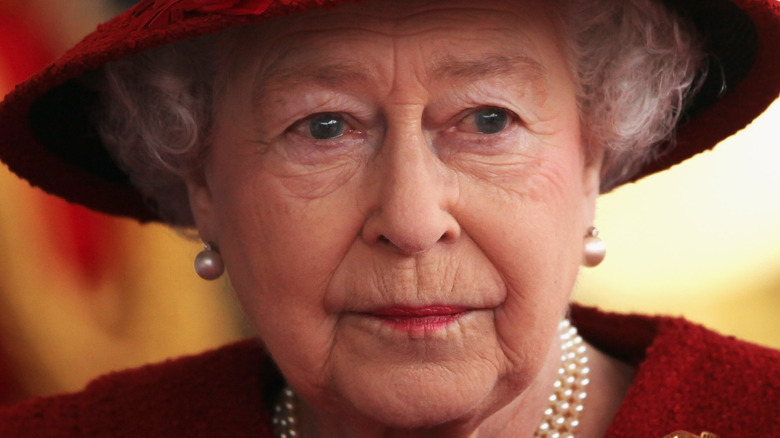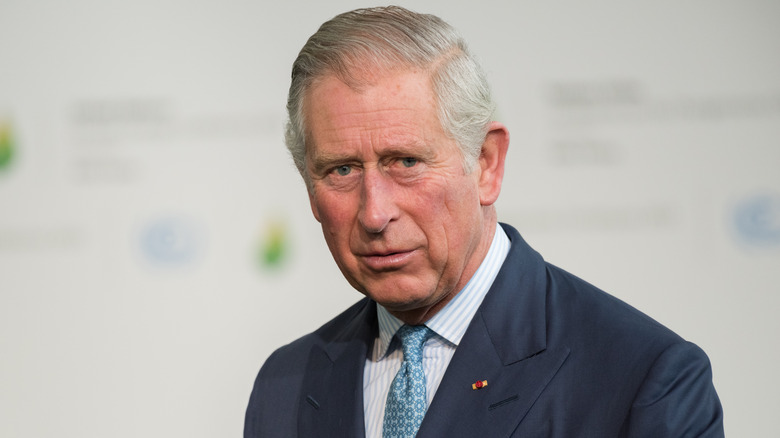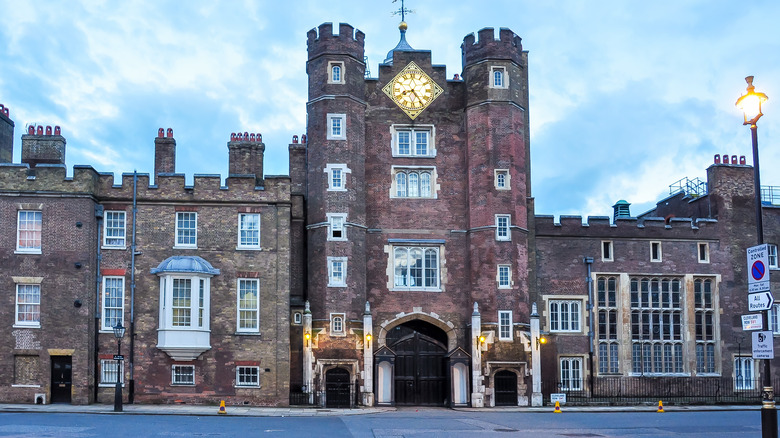What Is The Accession Council That Assembles When A British Monarch Dies?
Queen Elizabeth II of the United Kingdom is, as of August 2022, the longest-reigning monarch in British history, according to NPR News, and the second-longest-reigning monarch in world history. However, she's 96 years old, so her reign is coming to an end sooner rather than later. Her death, and the accession of her son, Prince Charles, to the throne will likely be one of the most Earth-shattering events to happen in the country since the death of Elizabeth's father, George VI.
The British government goes to great lengths to ensure that the transition from one monarch to the next is handled with as little fuss and controversy as possible. To that end, the line of succession is etched in stone, as are the plans for how the transition to the new monarch will be handled by the government and the press.
One of the key components of this transition will be the Accession Council, which, as their name implies, handles the accession of the next monarch to the throne — presumably Prince Charles, providing he neither precedes his mother in death nor abdicates his place in line to the throne.
The Accession Council doesn't 'make' Charles the king
Charles will become king immediately upon the death of his mother, according to Insider. The transition from Queen Elizabeth to King Charles (or whatever regnal name he chooses) will include multiple i's to dot and t's to cross, but those are all ceremonial and/or platitudes; none of them "make" him king. He becomes king when his mother dies, that's it. This is called his "accession."
If the transition from one monarch to the next is immediate and automatic, then what's the job of the Accession Council? According to Unofficial Royalty, the council will meet at St. James Palace within 24 hours of the previous monarch's death, to do the first of its two main jobs: Without the presence of the new monarch, the Accession Council will proclaim him king, by the name he has chosen. They will also make "certain orders ... relating to the Proclamation." The second of its main two jobs will happen when the new monarch can make enough room on his schedule to meet with them, ideally within a few hours or a couple of days. The new monarch will then read a proclamation confirming the death of their predecessor and their own status as the new monarch.
Who is on the Accession Council?
The Accession Council is, according to Unofficial Royalty, "all Privy Counsellors, Great Officers of State, Lord Mayor of the City of London, the Court of Aldermen, and High Commissioners of the Realms." The Privy Council is, according to the British Parliament, the group of men and women who advise the monarch. "They are individuals who hold or have held senior political, judicial or ecclesiastical office in the U.K. or in Commonwealth Realms," and include the Archbishop of Canterbury, the Speaker of the House of Commons, the Lord Chief Justice of England and Wales, and other powerful people. There are currently several hundred of them, including some who have sat on the council since the 1970s.
The "Great Officers of State," according to the U.K. National Archives, are effectively the country's cabinet. The Lord Mayor of the City of London is currently Vincent Keaveny. The Court of Aldermen are just that: aldermen elected from within the City of London, effectively the same job as aldermen of, say, Chicago or St. Louis. The High Commissioners of the Realms are effectively the crown's ambassadors to Commonwealth nations such as Canada and The Bahamas.


